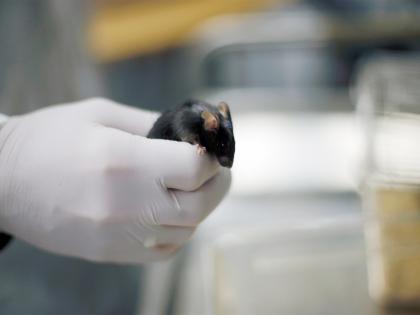China: 4 mice sent for life-science tests in space return to Earth
By ANI | Updated: November 16, 2025 06:20 IST2025-11-16T06:16:01+5:302025-11-16T06:20:04+5:30
Beijing [China], November 16 : The ninth batch of space science experiment samples, including four mice used in life-science ...

China: 4 mice sent for life-science tests in space return to Earth
Beijing [China], November 16 : The ninth batch of space science experiment samples, including four mice used in life-science tests, returned by the Shenzhou-21 spacecraft from the China Space Station on Friday, have been delivered to Chinese scientists early Saturday, Global Times learned from the Chinese Academy of Sciences (CAS).
The samples returned include life science, materials science, and combustion experiment samples involving 26 experimental projects, comprising nine types of life experiment samples, 32 types of materials experiment samples, and three types of combustion science specimens, with a total weight of approximately 46.67 kilograms, according to a CAS press release.
The mice were handled on-site after landing. Researchers will examine their behaviour and key physiological and biochemical indicators to preliminarily analyse the stress response and adaptive changes of mice to the space environment, providing a scientific basis for further understanding its effects on living organisms, according to the CAS, as quoted by Global Times.
In addition to the mice, other life science samples such as zebrafish, hornwort, streptomyces, planarians, brain organoids, along with several materials science and combustion science experiment samples, were transported to the Space Application Engineering and Technology Centre of CAS in Beijing at 0:40 am (local time) on Saturday, as per Global Times.
The centre will inspect and confirm the status of the returned experiment samples before delivering them to scientists for subsequent research.
The remaining materials science and combustion science experiment samples will be transported to Beijing later aboard the return capsule of the Shenzhou-21 spacecraft.
Scientists will then conduct transcriptomic sequencing, proteomics analysis, and other biological tests on the returned life science cell samples. The research will examine how microgravity affects the body at multiple levels, analyzing key biological mechanisms and intervention targets to provide new insights for the prevention and intervention of related diseases.
Once the materials science samples such as tungsten-hafnium alloys, soft magnetic materials, and relaxor ferroelectric single crystals, scientists will conduct tests and analyses on the organizational morphology, chemical composition, and distribution differences of the space samples. The studies will explore how gravity affects material growth, component segregation, solidification defects, and performance, as well as the service behavior and performance of materials in the special space environment.
The research findings will support future space applications, including high-performance solar cell protective materials, high-gain radiation-resistant optical fibers, and lunar base construction material preparation processes. They will also provide key theoretical foundations and technical support for satellite communications and broader space exploration, Global Times reported.
Disclaimer: This post has been auto-published from an agency feed without any modifications to the text and has not been reviewed by an editor
Open in app